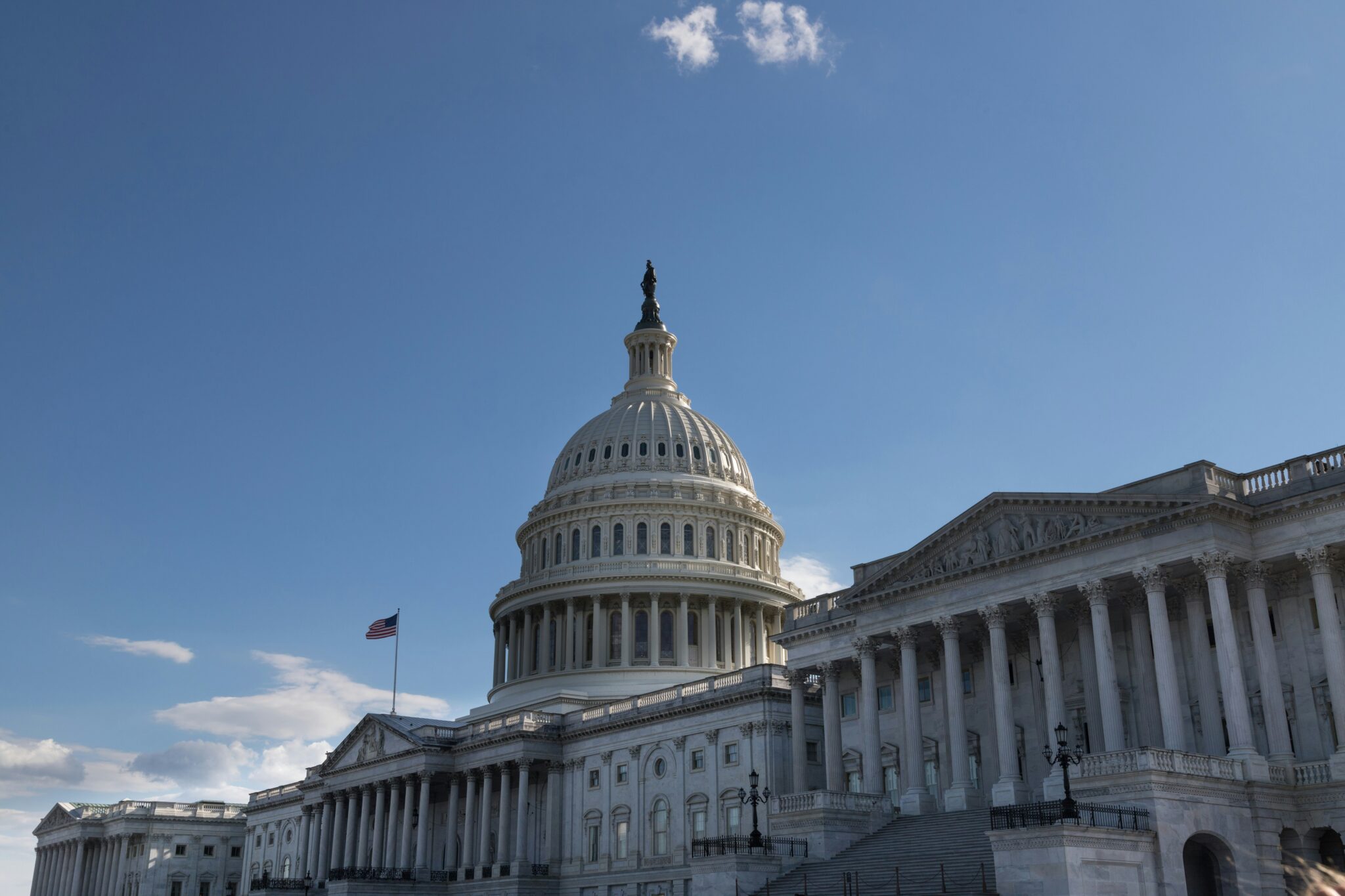Then shall all the trees of the wood sing for joy before the Lord. Psalm 96:12-13
July 17, 2003
Dear Members of Congress:
As representatives of many faith community traditions, we urge you to support strong protections for roadless areas in national forests by voting for the Inslee-Davis-Tauscher Amendment to the Interior Appropriations bill.
As the attached excerpts indicate, the religious community has supported a strong Roadless Rule for a long time. Please note the enthusiasm and strong theological reasoning of these quotes. We believe we are called by God to care for creation and feel that protecting some of the few remaining wild areas is part of this calling.
We are fortunate to still have the pristine forests, in Alaska and the lower 48 states, that would be protected by the Roadless Rule. We are also fortunate to have the opportunity to decide, as a society, to protect these areas. We urge our policy makers to listen to the many voices that have been raised, time and again, in support of a strong Roadless Rule. Once again, we ask you to support the Inslee-Davis-Tauscher Amendment to the Interior Appropriations bill.
Thank you for considering our concerns.
Sincerely,
Rabbi Warren Stone
Environmental Committee Chair – Central Conference of American Rabbis
Tim Stevens
Christians for Environmental Stewardship
Adam C. Stern
Executive Director – Coalition on the Environment and Jewish Life
Rev. Jim Mulligan
Executive Director – Earth Ministry
John B. Johnson
The Episcopal Church – Office of Government Relations
Brother David Andrews, CSC
National Catholic Rural Life Conference
Susan Hope Bower
Forest Point Person – North American Coalition for Christianity and Ecology
Presbyterian Church, USA
Peter Illyn
Restoring Eden
Jaydee R. Hanson
The United Methodist Church – General Board of Church and Society
EXCERPTS FROM RELIGIOUS COMMUNITY STATEMENTS REGARDING THE ROADLESS POLICY
“The protection of pristine forests is one step toward fulfilling our responsibility to be good stewards of God’s world. . . . Thousands of faith community voices have been raised for the protection of national forest roadless areas, and they urge policy makers to safeguard these national wilderness treasures. Protecting roadless areas . . . says to millions of supporters that federal policy makers take their views seriously.” July, 2002, letter to members of Congress signed by faith community policy offices.
“Many members of the religious community played a significant role in urging development of this strong policy to protect the undeveloped areas of our national forests. We were there in hearings, letters, and prayers. We have rejoiced at the prospect of protecting 58.5 million acres of some of our nation’s most pristine forests.” April, 2001, letter to the Administration signed by approximately 700 religious community leaders and individuals, from a wide variety of organizations and denominations.
“The instruction to care for creation is found in Scripture as well as other religious and ethical teachings. The earth belongs to God (Psalm 24:1, Leviticus 25:23, Isaiah 41:20), and God has declared that the totality of creation is “very good” (Genesis 1:31). We are tenants called “to till and keep” the garden (Genesis 2:15). . . . Moreover, it is often in wild places, such as pristine forests, that we encounter creation’s sheer magnificence. There, in awe and serenity, our hearts turn to God. We praise God for all the goodness we have received; we are “glad and rejoice, for the Lord has done marvelous things” (Joel 2:21). It would be sad to deny to future generations wild forest areas that offer this opportunity for spiritual sustenance and growth.” July, 2000, letter to the Administration signed by approximately 2000 members of the U.S. religious community.
“[W]e value these untouched forests not only for the vital ecological functions they provide, but also because they so clearly reflect our Creator’s handiwork. They reflect God’s majesty, power, and beauty in a unique way, as do all of the amazing variety of creatures they shelter. Forests are like a temple constructed by God, where we can worship and draw close by marveling at God’s endless wisdom and creativity: “How many are your works, O Lord, in wisdom You have made them all” (Psalm 104:24). June, 1999, letter to the Administration signed by about 320 religious community leaders and individuals, from a wide variety of denominations and organizations and from all over the country.
“We pray that you and your Administration formulate and promote plans for protecting national forest roadless areas that implement stewardship in the fullest sense. Please seize this opportunity to establish a legacy that clearly demonstrates we really care about our offspring and the web of life, upon which all lives – including our own – are dependent. . . . So much of this blessed land has already been made over into our own image, one often to the detriment of creation, with its elements of life including water, air, soil, plants, animals, and ourselves. Let us not lose this vital opportunity to honor God the Creator.” January, 2000, letter to the Administration from the Christian Environmental Council.
“Jewish activists across the country were among more than one and a half million Americans who formally commented in favor of a strong policy to protect roadless areas in National Forests. . . . When Jews around the U.S. soon gather to celebrate Tu B’Shvat, the Jewish New Year of the Trees, on February 8, we will rejoice in the protection of millions of acres of wild forests. And we will rededicate ourselves to the sacred task of preserving and restoring the Creator’s magnificent handiwork.” January 5, 2001, statement by the Coalition on the Environment and Jewish Life, commenting upon release of the roadless policy.
“For Christians, the argument for stewardship is forthright. We are given the task of caring for the earth, not destroying it. Nowhere in the Bible does God assign authority without accountability. A faithful steward asks, “What is best for the long-term health of the land that has been entrusted to me?” . . . [T]here are spiritual reasons to stop building roads. Roadless areas are places for spiritual solitude and prayer. Our souls need the wild. In Luke, 5:16 (kjv) we read, “Jesus went into the wilderness and prayed.” Protect the wild roadless areas for my child and my children’s children, but most importantly, cherish them as living reminders of the wonder and wisdom found in God’s creation.” January 5, 2001, statement by Target Earth, commenting upon release of the roadless policy.
“Earth Ministry embraces a Christian theology perspective that sees all of creation as a sacramental gift of the Creator, given to sustain humanity and all living creatures. Untrammeled nature reveals to us something of the fullness of the Divine; it is a “window to God.” Therefore, we humans are called to be stewards of creation, to respect and protect its inherent worth. Forests reveal the grandeur and mystery of God; and are home to innumerable species, God’s creatures. We have frequently sinned — sometimes in ignorance, sometimes, in greed – in overusing forests for immediate gain without considering long-range impacts. This kind of abuse must cease. January 5, 2001, statement by Earth Ministry, commenting upon release of the roadless policy.
“[T]he policy shows a recognition that the people of this nation . . . need these invaluable places for learning about and growing in love for God, our families, friends, neighbors, and other creatures. And the policy demonstrates an appreciation of the importance of national forest roadless areas to the production of those increasingly scarce and absolutely vital elements of life, clean water and clean air. All of the Bible is summarized in the two commands to love God and to love our neighbor. Public policies like the roadless policy enable us to show our love for God by demonstrating respect for what the Creator has made and loves, and for our neighbor by protecting these invaluable wild places.” January 5, 2001, statement by the North American Coalition for Christianity and Ecology, commenting upon release of the roadless policy.
“The Christian Environmental Council (CEC) applauds the roadless policy unveiled today, as a major step toward protecting pristine parts of God’s marvelous world. CEC maintains that central to our Christian lives is our belief that all of the environment belongs to God. As people of faith, we are deeply concerned about our responsibility to God’s marvelous creation. . . . One of the ways to fulfill our stewardship responsibility is through the enactment of strong public policies that protect the environment.” January 5, 2001, statement by the Christian Environmental Council, commenting upon release of the roadless policy.










